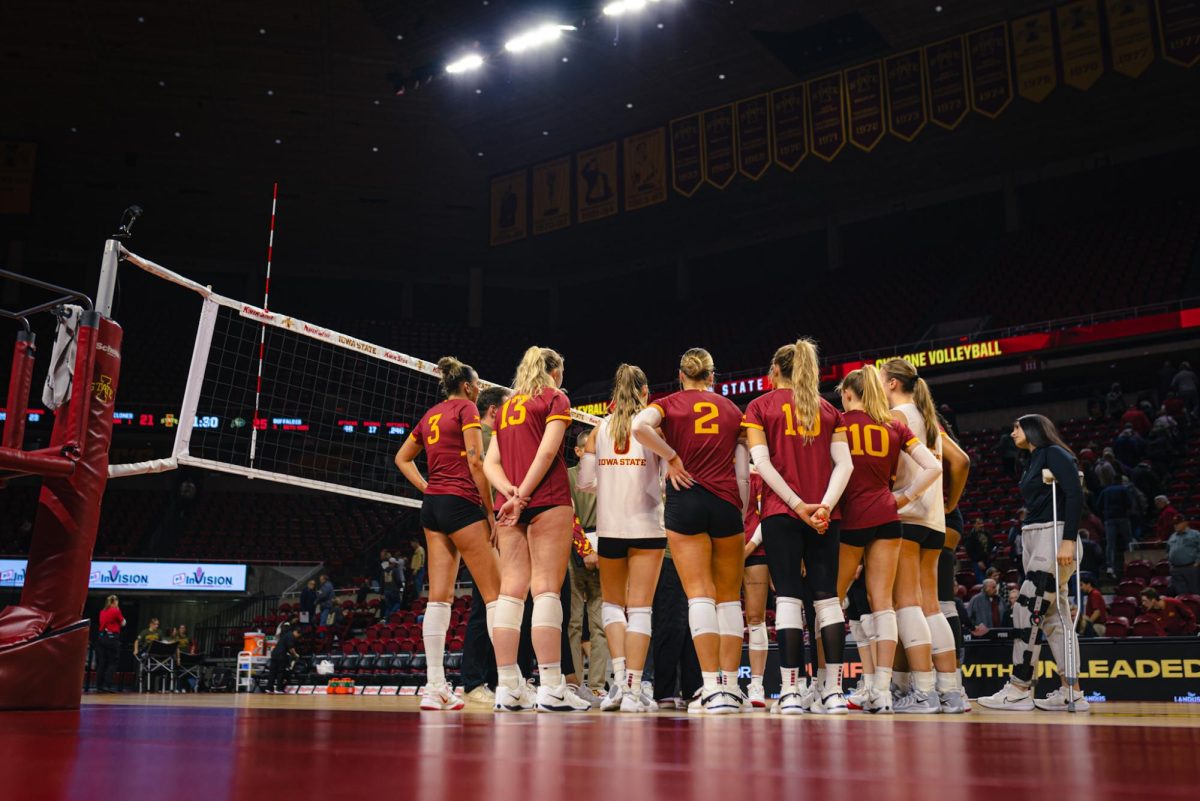COLUMN: Say goodbye to love, hello to social advancement
September 28, 2003
Julius Hibbert, the good doctor from “The Simpsons,” once defined two kinds of love — the love between a man and a woman and the love for a fine Cuban cigar.
While one of these kinds of love is a wonderful thing all people should experience in their lives, the other is a sham, a painful, socially misconstructed malevolence that we should banish for the good of humanity.
And anyone who’s ever experienced the sweet aroma of a Havana must know I would never advocate the destruction of such a prize.
So, at the risk of incurring the wrath of Bon Jovi, I will debunk romantic love, disprove the myth of Eros and discredit the motivating factor for most human endeavor.
In short, I’m going to give love a bad name.
Romantic love can be best compared to industrial-strength glue. Whether one uses it to hold their life together or simply to get high, it’s bound for eventual failure. If used for adhesion, it holds together for a while, but eventually it breaks down, leaving behind a sticky residue of uncomfortable silences and awkward encounters at the supermarket. If used as a narcotic, it begins with a nice buzz, but it always ends in clogged nostrils, brain damage and a big hospital bill that your insurance won’t cover.
The failure of romantic endeavor for students usually becomes apparent about now, some six weeks into the semester. By now, the freshmen have all cheated or been cheated on by their significant others at home. The singles have been to six weekends worth of bars and keggers and come away with far more distressed livers and public intoxication citations than infatuated hearts and phone numbers. Even in show business, where happy endings supposedly abound, not even birthday Bentleys and the world’s most sought after backside can keep A-list celebrities like Ben Affleck and J. Lo together.
Why is this true? Why are all relationships doomed to inevitable, irreconcilable, depressing, faith-in-humanity-shaking failure? It probably has something to do with the personal nature of love and the popular, but mistaken, conception of the emotion in today’s society.
The cultural movement that began around 50 years ago with television preaches to us two conflicting views on life and love. On the one hand, we have soap operas, sitcoms, magazines and movies telling us that love is forever and there is one perfect person for us — when we find them, we will live happily ever after. But at the same time we are told this, society programs us to be independent and to never be satisfied with our lives, jobs and ultimately, our significant others.
When these messages collide, when our dissatisfaction and desire for independence meet the myth of one Mr./Ms. Right, we are bound for failure.
So let’s give it up. Let’s declare our independence from love and its traps. We’ll throw away those Hallmark ready-made love letters that say nothing, and trash those movies that show Cinderella and Prince Charming’s beautiful wedding but conveniently leave out their family-wrenching, magic kingdom-halving divorce.
Of course, there are a few minor issues that arise with the abolishment of love — the fate of emo-punk music, Dr. Phil’s career and the continuation of the human race, but such things could surely be resolved with a bit of open-mindedness and advances in human genetics research. And when compared with the pros, these minor cons disappear altogether.
Think of the benefits of a world without love. Never again will men be duped into signing up for Victoria’s Secret credit cards or be forced to shop for feminine care products. Never again will women have to sit through sporting events that don’t interest them, or consume the patent medicines forced upon them in Cosmopolitan magazine.
Imagine the changes in media. The inane, insulting programming we find on every channel would be replaced with shows that stimulate our minds and improve our understanding. Instead of The “Bachelor” and “Queer Eye for the Straight Guy,” we would have “The Basque Culture” and “Queer Eye for Statistical Analysis.”
Imagine life here at the university. No longer saddled with finding a partner, the drinking and carousing we call social interaction would be pointless, and we could devote more time to studying, researching and debating. How long would it be before we cured every disease, restocked the ozone layer, discovered time travel, found the meaning of life and organized a logical college football postseason? Heck, with just a few Friday and Saturday nights of research, we could probably figure out how to live forever and thus render the principle purpose of romance irrelevant altogether.
Yes, I’m quite sure of it, a life without love would be nothing short of lovely — to live without those complications would be to live happily ever after.






